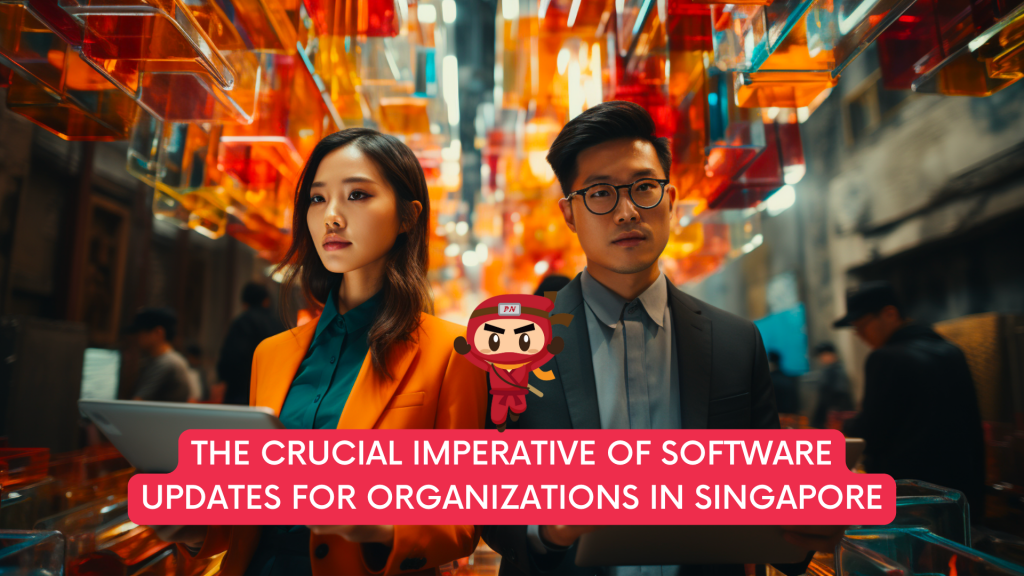
Software has become the backbone of modern organizations in Singapore, enabling them to streamline processes, enhance productivity, and deliver innovative solutions to customers. However, alongside the benefits of software usage comes the critical responsibility of keeping software up to date.
This article delves into the significance of software updates for organizations in Singapore, highlighting the reasons behind their importance, the potential risks of neglecting updates, and best practices for implementing a robust software update strategy.
Software updates, often referred to as patches or upgrades, are designed to improve the functionality, security, and stability of applications and systems. Organizations in Singapore, whether in the private or public sector, rely on software for various operations, including customer interactions, financial transactions, and data management. Regularly updating software helps organizations stay ahead of technological advancements, maintain data security, and ensure smooth operations.
One of the most compelling reasons for software updates is the reinforcement of cybersecurity measures. Software vulnerabilities are a common target for cybercriminals seeking to exploit weaknesses for malicious purposes. Organizations are particularly vulnerable if they use outdated software versions that lack the latest security patches. These vulnerabilities can lead to data breaches, unauthorized access, and loss of sensitive information. By promptly applying software updates, organizations in Singapore can fortify their digital defenses against evolving cyber threats.
Software is not immune to bugs and glitches that can hinder functionality, disrupt processes, and degrade user experiences. Updates often include bug fixes, addressing issues that may have been identified post-launch. Ignoring updates might result in lowered efficiency, increased downtime, and frustrated employees or customers. By embracing updates, organizations can enjoy smoother operations and higher user satisfaction.
Industries in Singapore are subject to regulatory requirements and evolving industry standards. Software updates frequently incorporate compliance enhancements to ensure organizations adhere to the latest regulations. Failure to update software can lead to non-compliance, resulting in penalties, reputational damage, and legal complications. Staying current with software updates enables organizations to align with industry best practices and remain competitive in a rapidly changing business environment.
Organizations that neglect software updates expose themselves to a multitude of risks that can have severe consequences. These risks include:
1. Security Breaches: Unpatched software vulnerabilities are prime targets for cyberattacks, putting sensitive data and critical systems at risk.
2. Data Loss: Inadequate updates could lead to data corruption, loss, or unauthorized access, jeopardizing customer trust and compliance obligations.
3. Operational Disruptions: Outdated software might suffer from decreased performance, crashes, or system failures, leading to workflow disruptions and financial losses.
4. Reputational Damage: Publicized breaches resulting from software vulnerabilities can tarnish an organization’s reputation, eroding customer confidence and investor trust.
To harness the benefits of software updates effectively, organizations in Singapore can follow these best practices:
1. Develop a Comprehensive Strategy: Establish a software update strategy that encompasses all software applications and systems, outlining responsibilities, timelines, and procedures.
2. Prioritize Critical Systems: Identify and prioritize critical software systems that directly impact business operations, security, and compliance.
3. Regularly Monitor for Updates: Stay informed about software updates by subscribing to official notifications, security advisories, and news from software vendors.
4. Test Before Implementation: Before rolling out updates across the organization, conduct thorough testing in controlled environments to identify any potential conflicts or issues.
5. Implement Scheduled Updates: Schedule regular maintenance windows for applying updates to minimize disruption to operations.
6. Backup Data: Regularly backup critical data to safeguard against potential data loss during the update process.
7. Employee Education: Educate employees about the importance of software updates and their role in maintaining a secure digital environment.
8. Stay Informed: Keep abreast of emerging security threats and evolving software vulnerabilities to proactively address potential risks.
Software updates stand as a cornerstone of modern organizational operations in Singapore. By enhancing security, mitigating bugs, and ensuring compliance, these updates play a pivotal role in safeguarding an organization’s digital infrastructure. The risks associated with neglecting software updates are far-reaching and can result in significant financial losses, reputation damage, and legal ramifications.
To navigate the ever-changing technological landscape, organizations must prioritize regular software updates as a vital component of their cybersecurity and operational strategies. By embracing a proactive approach to software update management, organizations in Singapore can fortify their digital resilience and position themselves for sustained success in the digital age.
Your appointed DPO can work with you on your PDPA compliance, ensuring that there will be policies in place to make sure that the handling of personal data is PDPA compliant.
A Data Protection Officer (DPO) oversees data protection responsibilities and ensures that organisations comply with the Personal Data Protection Act (PDPA). Furthermore, every Organization’s DPO should be able to curb any instances of PDPA noncompliance as it is the officer responsible for maintaining the positive posture of an organisation’s cybersecurity.
DPOs complement organisations’ efforts to ensure that the organisation’s methods of collecting personal data comply with the PDPA. It also ensures that policies are set in place to make sure that there will be no instances of data breaches in the future.
Don’t wait any longer to ensure your organisation is PDPA compliant. Take our free 3-minute PDPA Compliance Self-audit checklist now, the same “secret weapon” used by our clients to keep them on track. Upon completion, we will send you the results so you can take the necessary action to protect your customers’ data. Complete the free assessment checklist today and take the first step towards protecting your customers’ personal data.
Role of Enhanced Access Controls in Safeguarding Personal Data in Telecommunications that every Organisation in…
Effective Incident Response Procedures in Strengthening Data Security that every Organisation in Singapore should know…
Crucial Role of Regular Vulnerability Scanning that every Organisation in Singapore should know. Strengthening Your…
Enhancing Data Security with Multi-Factor Authentication that every Organisation in Singapore should know. Enhancing Data…
Strong Password Policy as a first line of defense against data breaches for Organisations in…
Importance of Efficient Access Controls that every Organisation in Singapore should take note of. Enhancing…
This website uses cookies.